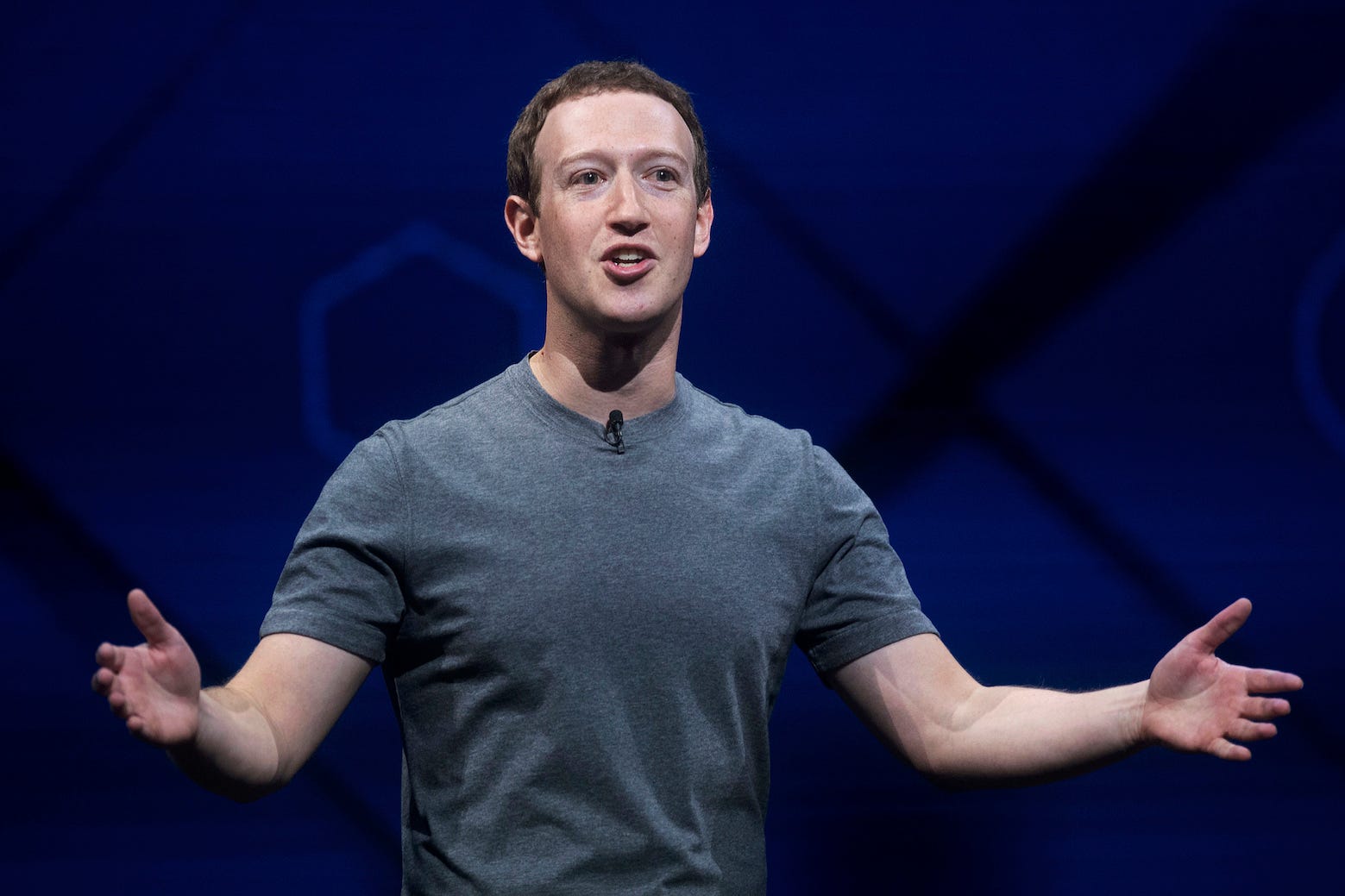- Mark Zuckerberg told employees last week that Facebook was “not gonna change” in response to the growing advertiser boycott over its hate-speech policies, The Information reported Wednesday.
- Zuckerberg called the boycott a “reputational” issue, saying it threatened only a “small percent” of Facebook’s revenue and predicting advertisers would return to the platform “soon enough,” according to The Information.
- More than 500 companies have joined the boycott, including major brands such as Coca-Cola, Ford, Starbucks, and Verizon.
- Civil-rights groups called on advertisers to abandon the platform after Zuckerberg refused to take action on inflammatory posts by President Donald Trump about unrest in the US.
- Visit Business Insider’s homepage for more stories.
Facebook CEO Mark Zuckerberg told employees last week that the company would not change its approach on hate speech even with scores of advertisers boycotting the platform, The Information reported Wednesday.
“We’re not gonna change our policies or approach on anything because of a threat to a small percent of our revenue, or to any percent of our revenue,” Zuckerberg said during a virtual town hall on Friday, according to The Information.
“My guess is that all these advertisers will be back on the platform soon enough,” he said, according to The Information, adding that the boycott was a “reputational and a partner issue” rather than a financial one because most of Facebook’s revenue comes from small businesses and not large brands.
Facebook saw $60 billion in market value erased in just two days earlier this week as major brands joined the boycott, but its shares have largely rebounded since then.
In recent weeks, civil-rights groups including the NAACP, the Anti-Defamation League, and Color of Change called for advertisers to boycott Facebook following Zuckerberg's inaction on inflammatory posts by President Donald Trump including one suggesting looters might be shot amid unrest following George Floyd's death.
More than 500 companies, including major brands such as Coca-Cola, Ford, Starbucks, Verizon, Adidas, and Unilever, have pulled ads from the social-media platform as part of the campaign.
On Friday, as the boycott gained steam, Facebook said it would attach labels to "newsworthy" posts from politicians that violated its hate-speech policies - a significant reversal for the company - and tighten up its rules for advertisers.
Facebook executives also have tried in multiple private discussions to address advertisers' concerns, but those talks ultimately broke down, with advertisers calling Facebook's efforts "simply not moving" and the boycott's organizers demanding that Zuckerberg personally attend because "he is the ultimate authority," Reuters reported.
Zuckerberg eventually agreed to meet with leaders of the NAACP, Color of Change, and the Anti-Defamation League, the ADL representative Todd Gutnick told Business Insider.
Zuckerberg's comments Friday suggest he may have already made up his mind, and he seemed to hint that the boycott might actually be backfiring.
"If someone goes out there and threatens you to do something, that actually kind of puts you in a box where in some ways it's even harder to do what they want because now it looks like you're capitulating, and that sets up bad long-term incentives for others to do that [to you] as well," Zuckerberg told employees, according to The Information.
In an email to Business Insider, a Facebook representative said: "We take these matters very seriously and respect the feedback from our partners. We're making real progress keeping hate speech off our platform, and we don't benefit from this kind of content. But as we've said, we make policy changes based on principles, not revenue pressures."

